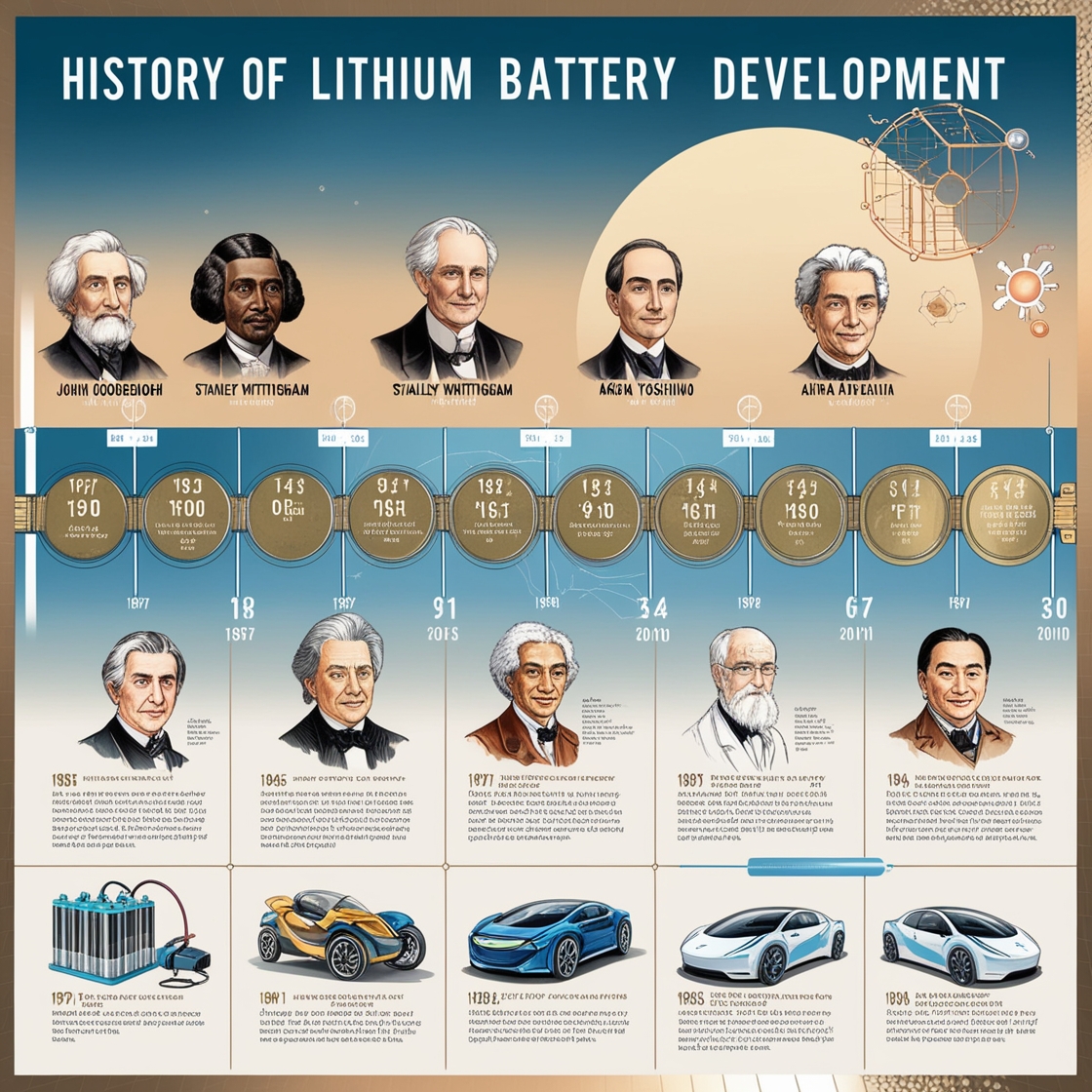Introduction:
Lithium batteries have become an integral part of our daily lives, powering everything from smartphones and laptops to electric vehicles and renewable energy storage systems. The history of lithium batteries is a fascinating journey spanning several decades, marked by significant advances in technology and innovation. From humble beginnings to their current position as leading energy storage solutions, lithium batteries have revolutionized the way we use and store electricity.
The creation of lithium batteries
The story of lithium batteries dates back to the 1970s, when researchers first began exploring lithium's potential as a key ingredient in rechargeable batteries. It was during this time that scientists discovered lithium's unique properties, including its high energy density and lightweight nature, making it ideal for portable electronic devices. This discovery laid the foundation for the development of lithium-ion batteries, which will continue to dominate the consumer electronics market for years to come.
In 1979, Oxford University chemist John Goodenough and his team made a breakthrough and developed the first lithium-ion rechargeable battery. This pioneering work laid the foundation for the commercialization of lithium-ion batteries, which are rapidly gaining popularity due to their superior performance and longer service life compared to traditional lead-acid and nickel-cadmium batteries.
Throughout the 1980s and 1990s, considerable research and development efforts focused on improving the performance and safety of lithium batteries. One of the key challenges is to find a stable electrolyte that can withstand lithium's high energy density without compromising safety. This has led to the development of various electrolyte formulations and battery management systems that significantly improve the reliability and safety of lithium-ion batteries.

The breakthrough of lithium batteries
Throughout the 1980s and 1990s, considerable research and development efforts focused on improving the performance and safety of lithium batteries. One of the key challenges is to find a stable electrolyte that can withstand lithium's high energy density without compromising safety. This has led to the development of various electrolyte formulations and battery management systems that significantly improve the reliability and safety of lithium-ion batteries.
The early 2000s marked a turning point for lithium batteries, with advances in nanotechnology and materials science spurring the development of lithium iron phosphate (LiFePO4) and lithium polymer batteries. These new battery chemistries offer higher energy density, faster charging capabilities and enhanced safety features, further expanding the use of lithium batteries in automotive, aerospace and renewable energy sectors.
The future of lithium batteries
The widespread adoption of electric vehicles (EVs) and growing demand for energy storage solutions have driven the development of high-performance lithium batteries. In recent years, major advances in battery technology such as solid electrolytes and silicon anodes have further improved the energy density and cycle life of lithium batteries, making them a viable option for large-scale energy storage and grid stability.
The history of lithium batteries demonstrates the relentless pursuit of innovation and the transformative power of technology. Today, lithium batteries are a cornerstone of the clean energy transition, enabling widespread adoption of electric vehicles and renewable energy integration. As the world seeks to reduce its dependence on fossil fuels and combat climate change, lithium batteries will play a key role in shaping a sustainable and low-carbon future.
Conclusion
To sum up, the development history of lithium batteries is an extraordinary journey of scientific discovery, technological innovation, and industrial transformation. From their early days as laboratory curiosities to their current status as ubiquitous energy storage solutions, lithium batteries have come a long way in powering the modern world. As we continue to unlock the full potential of lithium batteries, we will usher in a new era of clean, reliable and sustainable energy storage that will shape the future of our planet.
If you have any questions or would like to learn more, please don't hesitate to reach out to us.
Request for Quotation:
Jacqueline: jacqueline@heltec-energy.com / +86 185 8375 6538
Sucre: sucre@heltec-bms.com / +86 136 8844 2313
Nancy: nancy@heltec-energy.com / +86 184 8223 7713
Post time: Aug-19-2024
